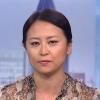
Although the American-born skier Eileen Gu became a darling of the Chinese public during the Winter Olympics in Beijing, China trained many of its sports champions at home, through its juguo (whole nation) sports regime. And now China is applying the juguo approach – deploying massive resources to achieve a strategic objective or build national prestige – to attaining world-class technological prowess.
China is pursuing its technological goals with an intensity unseen since Chairman Mao Zedong committed to developing nuclear weapons six decades ago. The motivation could not be clearer. Under President Donald Trump, the United States launched a campaign against Chinese tech companies – especially Huawei and ZTE – which included restricting their access to US-controlled critical technologies like semiconductors. That campaign has continued under President Joe Biden, and many more Chinese firms face a similar fate if they are added to America’s so-called Entity List.
America’s actions have amounted to a wake-up call for China. Rather than remain vulnerable to the whims of the US, it needs to become technologically self-reliant.
Market forces could help here. With companies being forced to procure advanced equipment and technology from domestic sources, demand for Chinese technology is rising. This is likely to accelerate its development.
But President Xi Jinping is not leaving China’s technological fate up to the markets. Technological progress is a centerpiece of national policy embedded in the 14th Five-Year Plan. Whereas in the past a government minister would have been responsible for managing this process, Xi is overseeing it directly.
As part of this initiative, the government is showering Chinese tech firms with land, cash, and contracts. And it is building an innovation ecosystem modeled after the Manhattan Project and NASA’s Apollo program, with a fully integrated incubation chain linking national labs, universities, and high-tech “science parks.”
China’s government plans to build ten national research labs, each with a different focus – for example, an artificial-intelligence lab in Shanghai and a quantum-computing lab in Hefei – and supervised directly by a member of the Standing Committee, the Communist Party of China’s top decision-making body. Moreover, the authorities aim to create 100 new tech centers and 100 additional high-tech industrial parks around the country, and have introduced an accelerated process for initial public offerings, delivered through the new Shanghai Stock Exchange Science and Technology Innovation Board (also known as the STAR Market).
Local governments also have a crucial role to play in this process. And, already, many are being innovative about how they support technological development. Many local governments – such as in Shanghai, Chengdu, Hefei, and Chongqing – have embraced fund-of-funds structures and begun securing large stakes in ventures. The Shanghai government collaborated with Tesla, and the Anhui government secured a stake in the Chinese electric-vehicle company Nio.
By encouraging venture capitalists to bring potential “unicorns” to their regions, local governments position themselves to get credit for the resulting GDP growth, job creation, and innovation. China has already attracted thousands from around the world to fill research-related positions.
To be sure, over the last two years, China’s central government has taken sweeping action to regulate and rein in tech giants in the name of antitrust, social equity, and data protection. But, contrary to popular belief, this campaign does not contradict, let alone undermine, the goal of achieving global technological supremacy. In the long run, appropriate regulation will pave the way for high-tech companies’ robust growth on a level playing field.
The regulatory crackdown has targeted consumer-facing internet-platform companies, including Alibaba, Didi, and JD.com. None operates in the cutting-edge areas – such as biotech, quantum computing, artificial intelligence, and semiconductors – where China hopes to catch up to the US. Curbing their growth will not only boost competition in the sectors where they do operate; it might also free up resources, which could be redirected to the technological frontier.
In any case, the juguo system means that national resources can be mobilized and allocated without tallying the cost. This means the equivalent of billions – maybe trillions – of dollars will go toward subsidizing innovation, from supporting basic research to building science parks. The effort will inevitably waste resources. But China’s leaders are confident that, in the long term, it will pay off.
That kind of thinking is the main advantage of a state-led strategy. Innovation is a highly uncertain process, fraught with risk. Left to their own devices, private firms often prioritize short-term gains over opportunities to invest in innovation and develop core competencies.
China’s government, however, has the tools, patience, and determination to bring about long-term transformation, regardless of the short-term costs. The state will pay to cast a wide net in return for a big catch.
This strategy may help China accelerate its mastery of high-tech products, but to make real technological breakthroughs, the country needs a much more open education system. It also must create an innovation process in which people are motivated both by market rewards and an intrinsic desire to advance knowledge. China’s old “short, flat, fast” investment strategy, which has worked for sports and infrastructure, must give way to a new playbook for technology, adopted by a patient country with patient people and patient capital.
One thing is clear: Given the Chinese response to US pressure on its tech giants, it is safe to assume that further restrictions will only strengthen China’s determination to achieve technological self-sufficiency – and, eventually, global primacy. This should provide the Biden administration some food for thought as it considers its next steps.
Keyu Jin, a professor of economics at the London School of Economics, is a World Economic Forum Young Global Leader. Copyright: Project Syndicate, 2022, published here with permission.
14 Comments
This reads like a propaganda piece from the offices of the CCP.
China will achieve "global primacy", haha, "all your base are belong to us!"
Quite.
So the answer is just to give them the technology?
It’s clear there is competition and China military and business are different sides of the same coin.
I feel the West thinks all countries think and act like them or aspire to be like them - maybe many do, but with undemocratic countries that may never come to pass.
Vomit-inducing.
Disgraceful that it's coming out of a western university with a fine tradition.
To a large extent, the West has sold its soul and has only got itself to blame with the rise of 'Authoritarian Evil' in China, Russia etc.
China has been around for 5000 yrs while the US less than 300 yrs.
I know who I bet on.
I agree. Just a brief look at history can clearly show that the Chinese civilization has been at the forefront of progress for most of documented human history, with the exception of a brief interval between the 19th century and the 1980's. In the last 30 years it has restarted its economic progress in earnest. In more general terms, I bet that Eastern Asia (not just China) will be by far the dominant area of economic growth and innovation within the next 20 to 30 years.
Does that include human rights innovation?
Europe did not invent human rights.
""...the most basic fact about Chinese history had to be ignored: again and again, after the downfall of the Tang — conventionally dated 618 to 907 — the Han were defeated, conquered and long-ruled by much less advanced invaders whom they hugely outnumbered. One can visualise how it went: a few steppe warriors in rags and furs would arrive, the Chinese generals in silks and shiny armour facing them would exchange oh-so-clever Sun Tzu citations, their army would be overrun, the country conquered, and then ruled for decades or centuries. Over the thousand years down to the fall of the Jurchen-speaking Manchus in 1912, it was only during the Ming dynasty 1368–1644 that the Chinese were ruled by Chinese — very likely because the founder Zhu Yuanzhang started off as a monastery servant and could not have read Sun Tzu or any other of the delusional manuals that reduce warfare to clever tricks. Their uselessness was proved right into the 20th century, when the Japanese became the last of the badly outnumbered foreign conquerors to conquer Beijing, Nanjing, Shanghai, Canton and as much of China’s territory as they wanted, with both Communist and Kuomintang forces equally incapable of fighting them successfully.""
zing,
"Censorship in China has been intensifying under President Xi Jinping, and when schools reopened after the nation's Covid-19 lockdowns, they were ordered to embark on a national drive to remove books deemed politically incorrect. In Hong Kong, government employees removed books by pro-democracy activists from public libraries to see whether they violated a new national security law.
One rural middle-school teacher told Reuters their school had removed traditional comic-like picture books called lianhuanhua, books about Christianity, books about Buddhism and, notably, copies of Animal Farm and 1984 – George Orwell’s classic novels about authoritarianism which have been available in China for decades. “This is the first movement targeted at libraries since the Cultural Revolution,” said Beijing-based analyst Wu Qiang.
For years, publishers have known any references to Tiananmen Square, Taiwan, Falun Gong, Tibet or the Dalai Lama were likely to be rejected. Chinese authorities have worked especially robustly to ensure any maps depict Chinese national and regional boundaries as the People's Republic of China would like them to be, rather than the boundaries that other nations and international fora may recognise"
A sign surely of weakness, not strength.
"" the juguo system means that national resources can be mobilized and allocated without tallying the cost. This means the equivalent of billions – maybe trillions – of dollars will go toward subsidizing innovation, from supporting basic research to building science parks. The effort will inevitably waste resources. But China’s leaders are confident that, in the long term, it will pay off.""
I wish them well and have some confidence they will succeed. Certainly China is more willing to invest in Science than NZ. However I also remember Harold Wilson's 'white heat of technology' speech 60 years ago; that came to nought.
In contrast to some of the comments here, I consider this an outstanding article containing important insights as to China's responses to the geopolitical realities of the world. It is important that we understand both the pathways chosen by China and the reasons why. Whether or not we agree with those pathway is a different matter. The first step is to understand, and this article makes a contribution.
KeithW
I'm quite surprised you see it that way.
The CCP is authoritarian, and a controlling nation. They will tell you that any criticism is not acceptable and warrants economic sanctions. Repent and trade/tourism resumes.
On semiconductors, the CCP was supportive of Tsinghua Unigroup, and after years of operations, failed and is under re-structuring.
Even with top executives pinched from TSMC of Taiwan.
In sports, pinch an Eileen Gu and win a gold medal, not so in semiconductors.

We welcome your comments below. If you are not already registered, please register to comment
Remember we welcome robust, respectful and insightful debate. We don't welcome abusive or defamatory comments and will de-register those repeatedly making such comments. Our current comment policy is here.